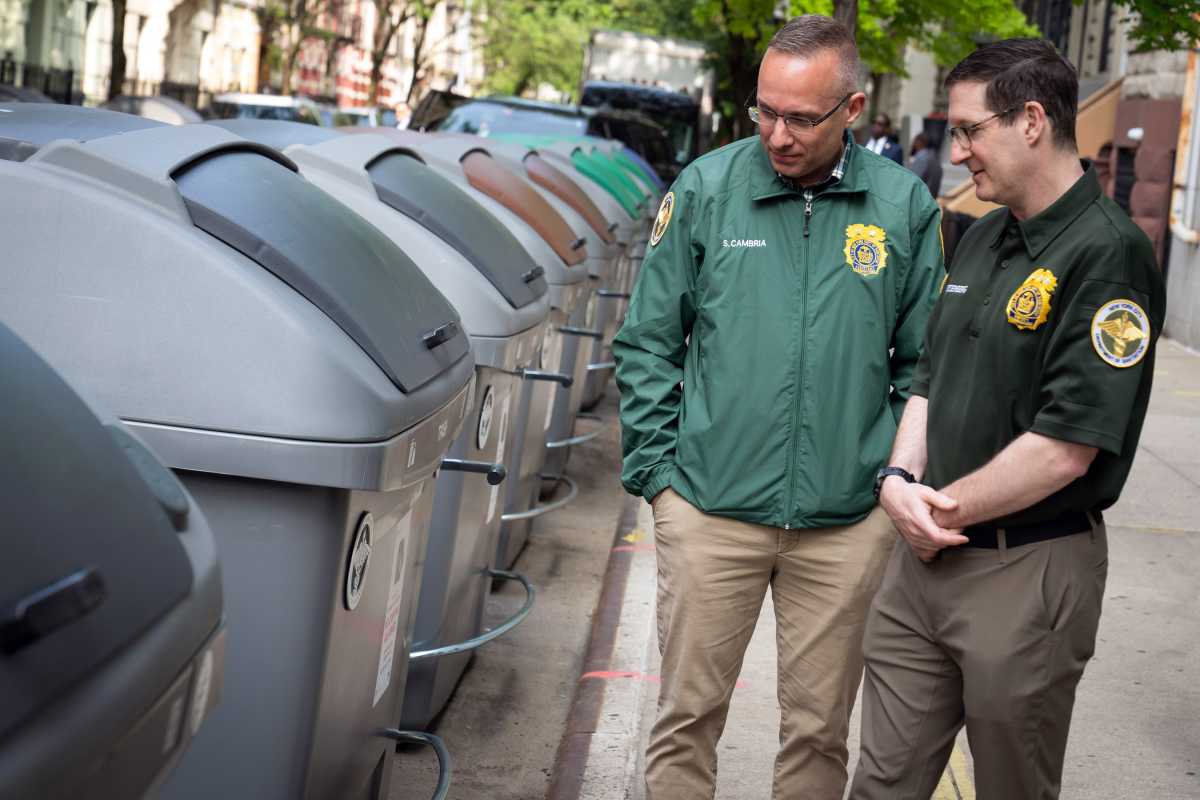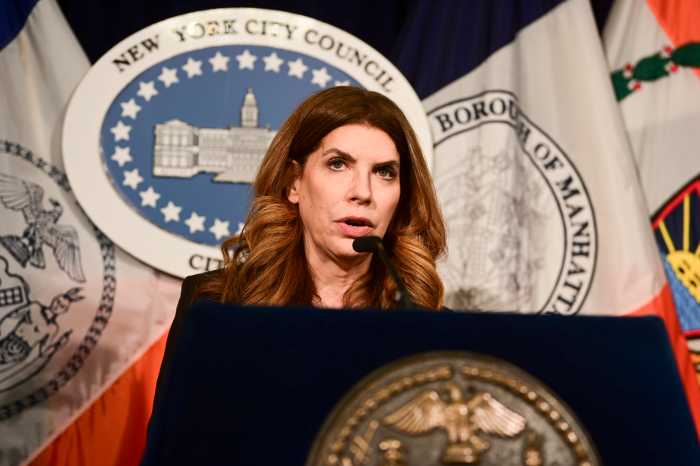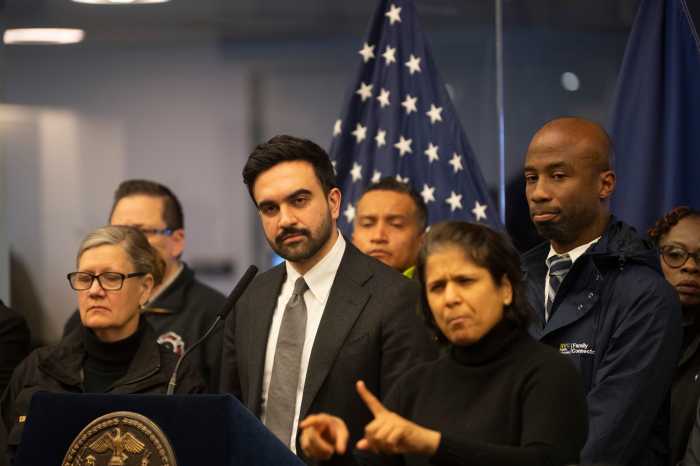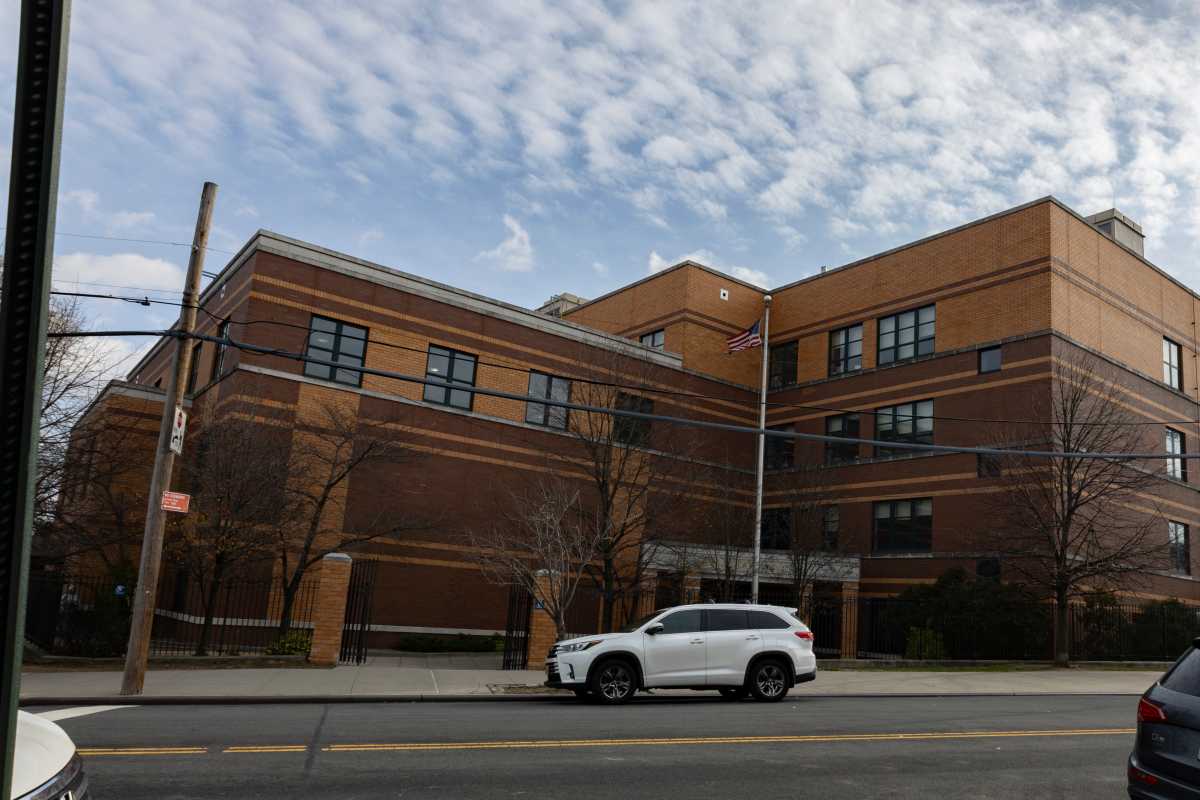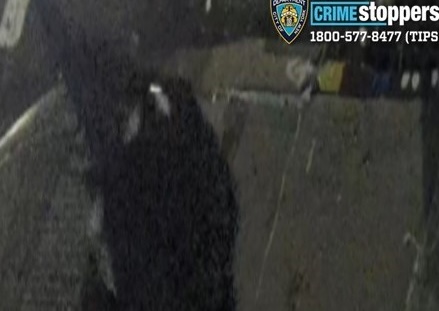The era of black trash bags on New York City streets and sidewalks is ending. That is the message we have been taking to every corner of the city, and the policy we have been delivering since the start of the Trash Revolution three years ago.
We have heard the same message as each new containerization rule was proposed: “This is a great idea, but it is not going to work.” Yet with every step, business owners, property managers, and homeowners have adjusted their habits and changed their decades-long way of doing things.
The results of these changes are undeniable: We have cleaner streets and sidewalks, and for nine straight months, rat sightings reported to 311 have dropped when compared to the same month one year prior.
At the same time, many Business Improvement Districts across the city that empty litter baskets as a supplemental service have continued to leave bags of trash on our sidewalks. Two years ago, these bags fit right in, as they would often sit next to other mountains of black trash bags. But as the Trash Revolution has moved across the city, eliminating black bags block by block, we know that this litter basket trash, too, needs to be off our sidewalks. To accomplish this goal, the city proposed a rule last summer prohibiting these groups from leaving bags of trash out for collection.
We greatly appreciate BIDs working side by side with us to deliver clean streets that help our local businesses thrive. Knowing how valuable they are to our commercial corridors and that they come in different sizes and scopes, the Department of Sanitation has been in touch with every BID this year to discuss solutions that will match their operational needs. These potential solutions included the use of smaller wheelie bins or larger on-street containers, bringing trash to a DSNY garage, or storing it in a truck or facility – basically anything but bags of trash on the sidewalk.
To help BIDs comply with the rule, this year’s adopted budget included $5 million to assist with the purchase of containers. This funding is already in the process of being doled out, and many BIDs are already in compliance. The city also agreed to delay enforcement of the Aug. 1 rule until the start of 2026 and, most importantly, the Department of Sanitation was clear that we would not issue summonses to any BID engaged in a good-faith effort to comply with this rule.
For these reasons, we oppose legislation that would delay the enforcement of this rule until August 2028. The rats are cheering this bill, but we know that legalizing for three more years the placement of this trash on our sidewalks is a mistake and a significant impediment to our shared goal of clean streets and sidewalks.
We can only truly transform our cityscape if we containerize all our trash, no exceptions. Two years ago, we had zero containerization requirements. Today, all trash from New York City businesses is required to be in a container, as well as all trash from low-density residential buildings. This week’s announcement that our successful Empire Bin pilot containerizing high-density residential trash in all of West Harlem would be expanding to Brooklyn should be a sign to all New Yorkers that we are serious about getting every bag of trash into a container. Again, no exceptions.
New Yorkers deserve clean streets. To deliver clean streets, businesses, residents, and any other entity should not be allowed to leave bags of trash on the sidewalk. We hope that our government colleagues will join us in opposing this legislation.
Javier Lojan is the acting commissioner of the NYC Department of Sanitation; City Council Member Shaun Abreu is the chair of the City Council Committee on Sanitation and Solid Waste Management.



